Key Takeaways
- Choosing the right Istanbul massage therapist can transform a simple treatment into a memorable cultural adventure.
- Know the main massage styles available in Istanbul - from deep‑tissue to aromatic Turkish oil sessions.
- Use trusted booking platforms and verify therapist credentials to avoid scams.
- Typical session costs range from80TL for a quick chair massage to350TL for a full‑hour spa package.
- Follow safety tips: hygiene standards, clear communication, and respecting local customs.
Direct Answer
If you’re looking for a relaxing, culturally rich bodywork session in Istanbul, start by locating a reputable Istanbul Massage Therapist is a professional who offers personalized therapeutic massages tailored to both locals and visitors. They combine modern techniques with traditional Turkish practices, ensuring you leave feeling refreshed and connected to the city’s heritage.
Comprehensive Guide to the Istanbul Massage Therapist Experience
Imagine stepping into a softly lit room, the scent of eucalyptus drifting in as a skilled therapist eases tension from your shoulders. That’s the vibe you’ll get in Istanbul’s top massage spots. In this guide we’ll walk through everything you need to know - from the types of massages on offer to how to book, what to expect, and how to stay safe.
Definition and Context
Massage therapy in Istanbul blends Western methods with centuries‑old Ottoman traditions. A Turkish Hammam is a historic steam bath that often pairs with massage, providing a warm environment that loosens muscles before treatment. The city’s thriving wellness scene means you can find anything from quick chair massages on Istiklal Avenue to luxurious full‑body rituals in historic neighborhoods like Sultanahmet.
Benefits of Booking a Local Therapist
Beyond pure relaxation, a professional session can improve circulation, reduce chronic pain, and boost mental clarity. Travelers report that the combination of massage and the city’s aromatic oils helps combat jet lag faster than any coffee. One client from Berlin shared that after a deep‑tissue session, their migraine attacks dropped from three per week to almost none.
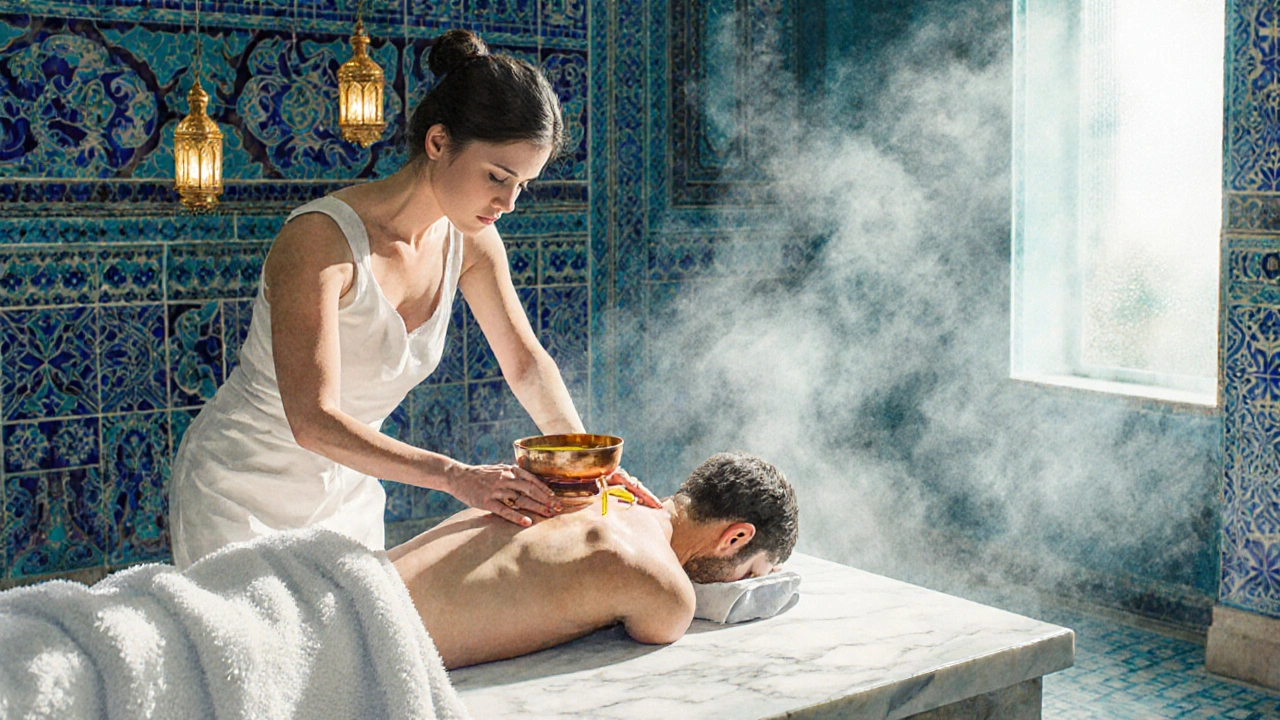
Types of Massage Available in Istanbul
- Deep Tissue Massage focuses on the deeper layers of muscle and connective tissue, ideal for athletes or anyone with persistent knots.
- Aromatherapy blends essential oils - like lavender or rose - with gentle strokes to calm the nervous system.
- Swedish Massage uses long, flowing movements for overall relaxation and stress reduction.
- Couples Massage lets you and a partner share a side‑by‑side session, perfect for romantic getaways.
- Traditional Turkish Oil Massage employs warm olive or almond oil, echoing centuries‑old spa rituals.
How to Find Reliable Therapists in Istanbul
Start with reputable booking platforms. Treatwell Turkey aggregates verified professionals, displays client reviews, and lets you filter by price, language, and specialization. You can also ask hotel concierges for recommendations; they often partner with licensed therapists who respect guest privacy. Look for the Türkiye Masaj Uzmanları Derneği (Turkish Massage Professionals Association) seal - it guarantees proper training and insurance.
What to Expect During a Session
First, the therapist will ask about any injuries, pressure preferences, and the goal of your visit. Expect a brief warm‑up in a private room, possibly with a light foot soak if you choose a Hammam package. The therapist will then use a combination of strokes tailored to the modality you selected. Sessions typically last 60minutes, but many places offer 30‑minute express options for a quick reset.
Pricing and Booking Details
Price ranges vary by location and therapist experience:
- Express chair massage (30min) - 80TL
- Standard full‑body Swedish or Deep Tissue (60min) - 150‑250TL
- Luxury Hammam + oil massage package (90min) - 350‑450TL
Most spas accept cash, credit cards, and mobile payments (BKM Express). Book at least 24hours in advance, especially on weekends. Cancellation policies typically require 12‑hour notice to avoid a 20% fee.
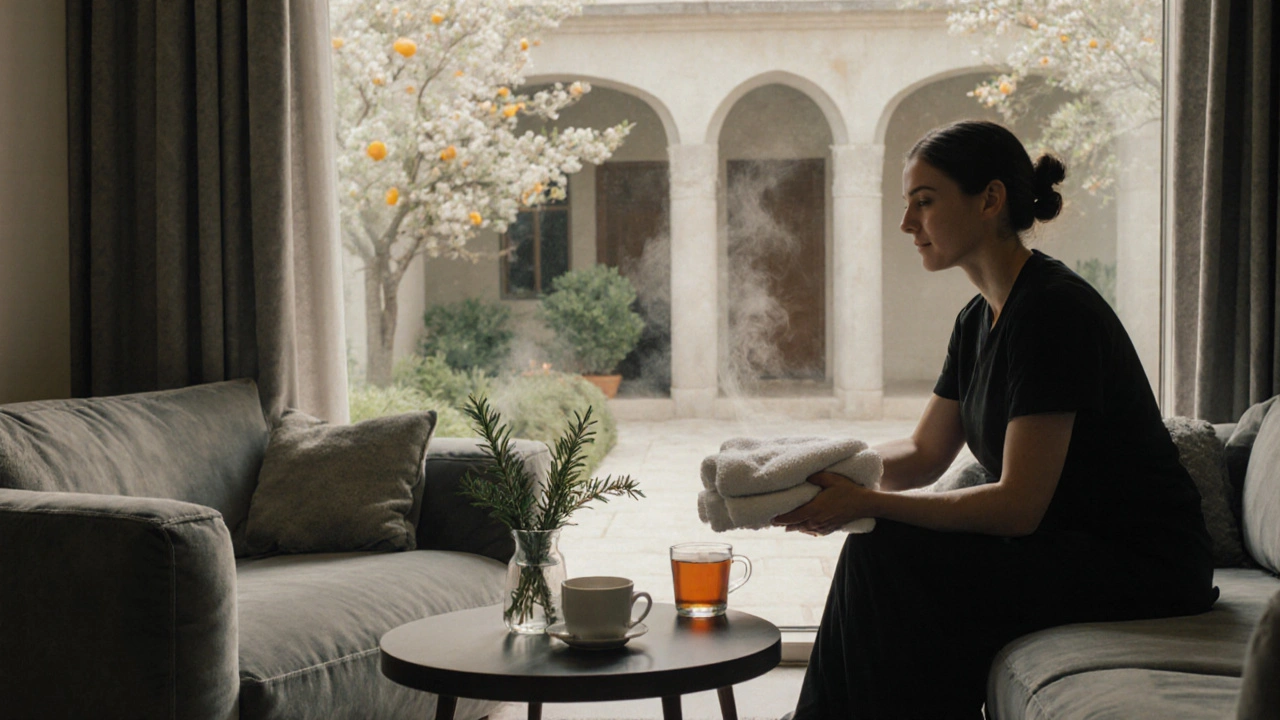
Safety Tips for a Smooth Experience
- Verify the therapist’s license through the national health ministry portal.
- Inspect the treatment space - clean linens, sanitized tools, and a well‑ventilated environment are non‑negotiable.
- Communicate pressure levels clearly; a good therapist will adjust on the fly.
- Avoid alcohol before a session; it can impair circulation and increase the risk of dizziness.
- Respect cultural norms - modesty is valued, so many places provide towels or robes for coverage.
Comparison Table: Massage Therapist vs. Spa Center in Istanbul
| Aspect | Independent Therapist | Full‑Service Spa |
|---|---|---|
| Flexibility of Schedule | Can often accommodate last‑minute slots | Requires advance booking, often 48hrs+ |
| Price per Hour | 120‑180TL | 150‑300TL (includes extra amenities) |
| Privacy Level | One‑on‑one room, minimal staff | Shared facilities (steam rooms, lounges) |
| Additional Services | Focused solely on massage | Facials, body wraps, tea service |
| Typical Session Length | 30‑90min | 60‑180min (often includes hammam) |
Frequently Asked Questions
Do I need to speak Turkish to book a massage?
Most therapists in tourist areas speak English, and platforms like Treatwell let you filter by language. It helps to know a few basic phrases, but you’ll be fine with English.
Are massages in Istanbul safe for foreigners?
Yes, provided you choose licensed professionals. Look for the association seal or check the Ministry of Health’s online registry before booking.
What’s the difference between a Hammam and a regular spa?
A Hammam focuses on steam, exfoliation, and often follows with a Turkish oil massage. Traditional spas may offer hydrotherapy, sauna, and a broader menu of beauty treatments.
Can I get a couples massage without a romantic partner?
Absolutely. Many venues welcome friends or family members to share a side‑by‑side session.
How much should I tip a therapist in Istanbul?
Tipping is optional but appreciated. A 5‑10% tip or rounding up the bill is customary.
Ready to Book?
Now that you know what to look for, pick a style, check the credentials, and schedule your session. Whether you’re winding down after a day of sightseeing or need a mid‑week boost, Istanbul’s massage therapists have you covered. Book your unforgettable massage today and let the city’s soothing touch melt your stress away.
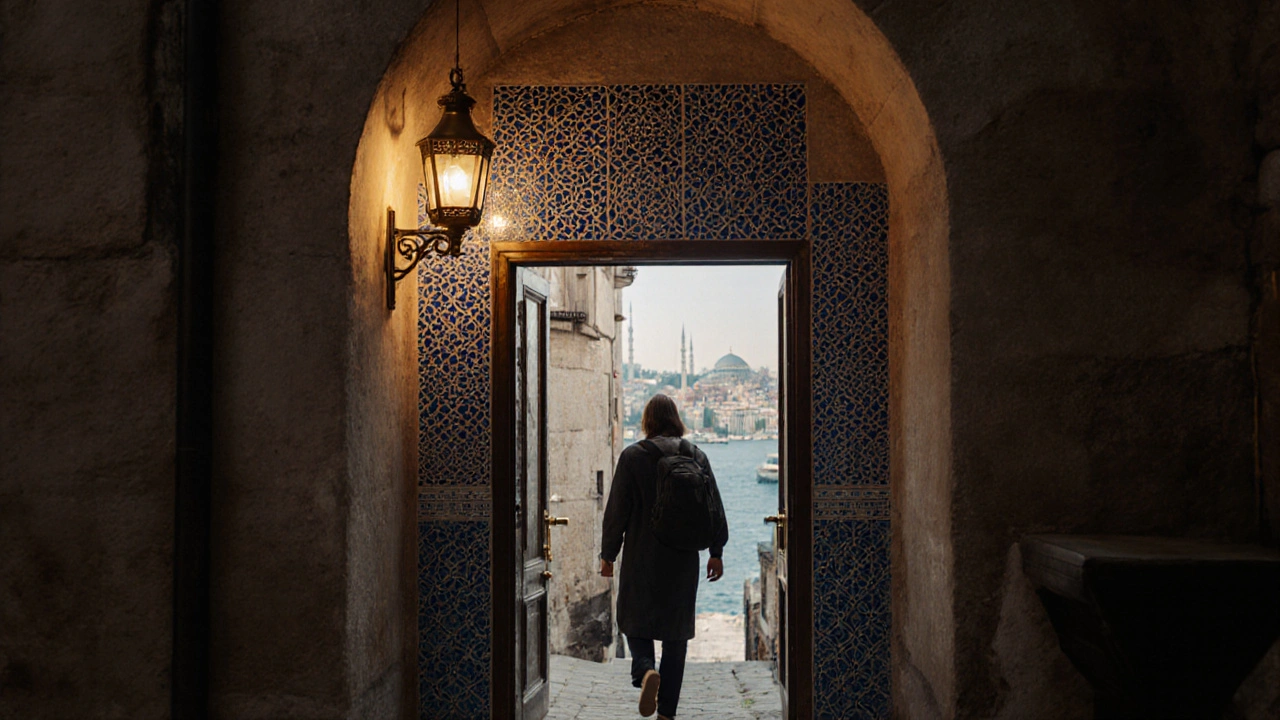
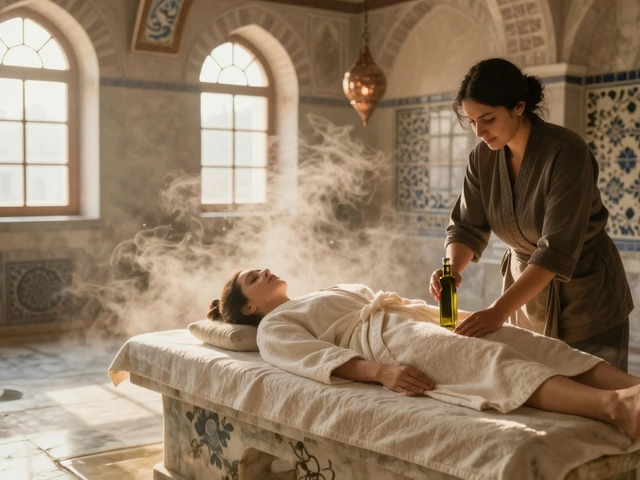
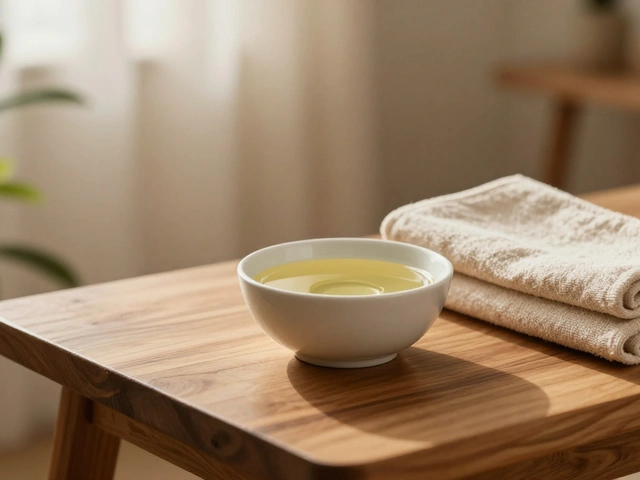
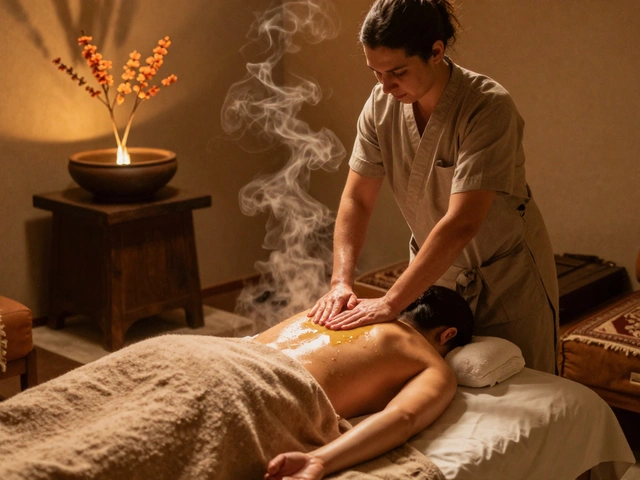
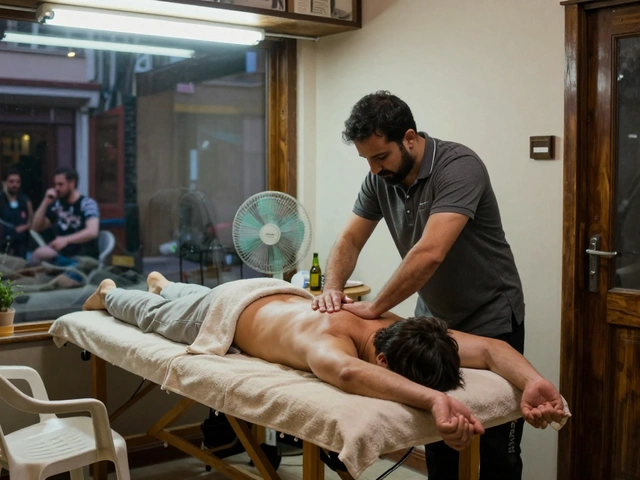
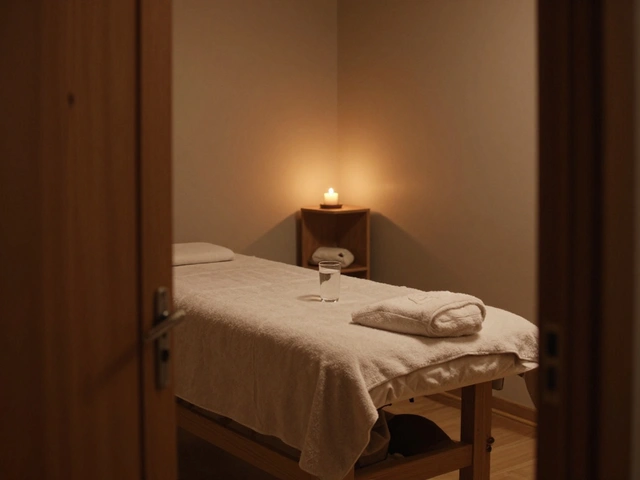
The guide glosses over licensing verification, which is a non‑negotiable safety issue.
One cannot endorse such commercialized wellness without condemning the exploitation of cultural heritage.
I totally agree that a therapist who respects local customs makes the experience richer. The blend of modern technique with Ottoman tradition is exactly why I love traveling. If you’re nervous, just ask for a short consultation – they’ll tailor the pressure. Many places even let you choose English‑speaking staff, so language won’t be a barrier. Go ahead and book that oil massage, you’ll thank yourself later!
They don’t want you to know that most of those booking platforms are front‑ends for shadow networks. Everyone thinks they’re legit but the Ministry of Health list is a smokescreen. You walk in and they have you sign waivers that hand over your data. Trust no one unless you verify the seal yourself.
Ah, the marvel of modern travel guides that promise a “cultural adventure” while conveniently forgetting the mundane realities of everyday life.
Let’s start with the notion that every therapist is automatically trustworthy because they are listed on a glossy website.
In practice, you often find yourself negotiating a hidden agenda, whether it’s a push for an extra oil upgrade or a subtle upsell of a “signature” hammam ritual that costs twice as much as advertised.
The guide mentions prices in Turkish lira, but forgets to mention the volatile exchange rates that can turn a 150 TL session into a painful credit‑card statement.
And while you’re busy deciphering the cost, the therapist is probably counting on the fact that most tourists won’t question the hygiene standards because they are too eager to relax.
Sure, the article says to verify the license through the health ministry portal, but it doesn’t warn you that the portal itself is riddled with outdated entries and occasional phishing attempts.
If you happen to ask about the association seal, you might be handed a glossy brochure that looks official but was printed by a third‑party marketing firm.
The real kicker, however, is the cultural etiquette section that suggests modesty is valued, yet many establishments still require you to undress to a degree that would make a Victorian lady blush.
Yes, you’ll be offered a towel or a robe, but the staff’s interpretation of “modesty” can vary wildly, turning a simple session into an awkward costume change.
On the plus side, the aromatherapy oils do smell lovely, and the steam of a hammam can indeed soothe jet‑lagged muscles, assuming you survive the bureaucratic maze first.
One traveler from Berlin mentioned a dramatic drop in migraine frequency after a deep‑tissue session, but the guide fails to mention that this anecdote was posted on a forum that also sells discount coupons for the same therapist.
In other words, the success story might be more marketing than medicine.
Nevertheless, if you navigate the system with a healthy dose of skepticism, you can still enjoy a genuinely restorative experience.
Just remember to bring cash, a translator app, and a willingness to question every “official” seal you encounter.
In the end, the Istanbul massage scene is a microcosm of tourism itself: a blend of allure and hidden complexity that rewards the vigilant more than the naïve.
While I appreciate the thoroughness of your exposition, several grammatical inaccuracies warrant correction.
The phrase ‘a “cultural adventure” while conveniently forgetting the mundane realities’ misplaces the quotation marks, which should envelop the entire phrase.
Moreover, ‘a push for an extra oil upgrade’ should be rendered as ‘an extra‑oil upgrade’ to avoid a double article.
Your reference to “150 TL” omits the necessary non‑breaking space between the numeral and the unit.
The sentence beginning with ‘If you happen to ask about the association seal’ suffers from a dangling modifier that ambiguously attaches to ‘the staff.’
In addition, the claim that ‘the portal itself is riddled with outdated entries and occasional phishing attempts’ requires substantiation, as it borders on conspiratorial speculation.
It would be prudent to cite the Ministry of Health’s official statement on portal maintenance to lend credibility.
Your observation about ‘modesty’ varying wildly is accurate; however, the term ‘Victorian lady’ is anachronistic in this context.
A more precise comparison would reference contemporary Turkish modesty norms, supported by cultural anthropological sources.
Finally, the anecdote concerning the Berlin traveler lacks a verifiable citation, thereby weakening the argumentative structure of your paragraph.
I recommend appending footnotes for each factual claim to enhance scholarly rigor.
In summary, a meticulous editorial revision will elevate the piece from informal commentary to a reliable guide for discerning travelers.